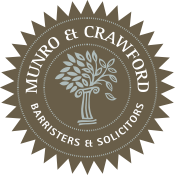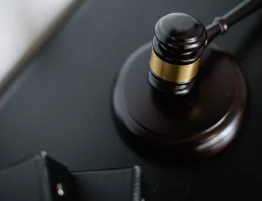If you’re planning your estate and have recently learned about probate, you’re likely asking yourself whether there are any opportunities to reduce the costs of the process or avoid it altogether.
Fortunately, there are several strategies that you can use to protect some of your assets from the probate process. If you work with a professional estate planning lawyer, they can walk you through your options and help you decide on an approach that aligns with your best wishes.
To show you the potential opportunities available to you, we at Munro & Crawford will walk you through which assets can avoid probate in British Columbia. We’ll also provide some advice to help you weigh up the pros and cons of each option and make a decision that’s right for you.
Contact a Lawyer
Which Assets Can Avoid Probate in British Columbia?
To avoid the probate process, assets must pass outside the deceased individual’s estate. There are several different examples of assets that fit this criteria.
Jointly Owned Property Exemptions
If the deceased was part of a joint tenancy agreement, right of survivorship means the assets within that joint tenancy will typically pass directly to the surviving tenant without going through probate.
Examples of jointly owned assets:
While joint tenancy agreements are typically associated with properties (houses, flats, condos, etc.), real estate isn’t the only asset class that can be jointly owned.
For instance, jointly owned vehicles usually pass to the co-owner without going through probate. In addition, jointly held bank accounts, investment accounts, and business interests often transfer directly to the surviving owner.
Pros and cons of joint ownership:
Joint tenancy agreements are a relatively common strategy to avoid probate in BC. The benefits of this method include:
- Avoiding the probate process, allowing the surviving owner to save on probate fees.
- Transferring assets immediately without complications.
- Avoiding the deceased’s estate becoming a public record.
That said, it’s important to review the cons before deciding if this is the right approach for you. Consider these drawbacks:
- Any increase in the asset’s value from the time you acquired it to the time you add a joint owner will be considered a capital gain, triggering a potential tax liability. This doesn’t apply if you add your spouse as a joint owner.
- Once the assets are jointly owned, the property is vulnerable to the creditors of the other owner.
- Any tax liability triggered upon death will be the sole responsibility of the surviving party’s estate.
- If the deceased named several joint owners, this could cause disputes surrounding the transfer of assets upon death.
Using joint tenancy to avoid probate is a complex process. You must understand what it entails before you decide whether joint ownership is the best approach for you.
Gifts Given Away During Your Lifetime
Assets given away during your lifetime, known as “inter vivos gifts”, are typically not subject to probate fees upon death.
That said, know that you will lose control of the asset as soon as you gift it to the recipient. This means you should be absolutely sure you want to give away the asset before you choose this method.
As with joint tenancies, you may also need to pay capital gains tax on the difference between the purchase price and current market value if you gift to someone other than your spouse.
If you decide to take this approach, make sure you document the gift properly to ensure it is proven you intended to give the asset away to the specified recipient. This is a precautionary step that can help to resolve disputes following your death.
Designated Beneficiary Accounts: Life Insurance Policies, RRSPs, and TFSAs
Provided they have a named beneficiary, assets such as life insurance policies, RRSPs and TFSAs will not form part of your estate upon your death, meaning they will transfer to your beneficiaries directly without going through probate.
This is an advantageous approach because it offers flexibility in a few different ways:
- You can name anyone as a beneficiary, including your spouse, child, or grandchild.
- You may name multiple beneficiaries and allot a proportion of your assets to each.
- You can designate a contingent beneficiary who will receive the assets if your primary beneficiary cannot.
However, if you don’t designate a beneficiary, or if your designated beneficiary passes away before you, the asset will go through the probate process as normal. If you were to list the beneficiary as your estate, your assets would still be subject to probate.
Types of accounts that allow designated beneficiaries:
Several account types allow designated beneficiaries, including:
- Life insurance policies
- Registered Retirement Savings Plans (RRSPs)
- Registered Retirement Income Funds (RRIFs)
- Tax-Free Savings Accounts (TFSAs)
- Registered Education Savings Plans (RESPs)
- Employee retirement plans
Importance of keeping beneficiary designations current:
If you take this approach, it’s crucial to regularly review your beneficiary designations, particularly following major life events. Marriage, divorce, or the birth of a child may mean your wishes evolve over time.
In addition, the death of your named beneficiary will subject your assets to probate if you haven’t named a contingent beneficiary. By periodically reviewing your beneficiary designations, you can ensure your loved ones receive what you intended for them.
Trusts Can Help Avoid Probate
Creating a trust allows you to transfer assets into that trust while you are still alive. The assets held in trust are then distributed upon your death in alignment with the terms you set out in your trust deed. Know that you must transfer your assets into the trust for this process to work—simply creating the trust isn’t enough.
There are two essential types of trusts to consider:
- Living Trusts (or inter vivos trusts) are created during your lifetime. You can add and remove assets to and from this trust as you see fit. These assets will then be managed by nominated individuals, known as trustees, who can distribute them according to your wishes after your death. Any assets within the inter vivos trust are not considered part of your estate and will not be subject to probate fees upon your death.
- Testamentary Trusts are established through your Will once you pass away. For that reason, they only come into effect after your death. As the trust is established through the Will, the assets must go through probate before they are placed into the trust. That said, once the trust is established, the trustee can distribute the assets according to the trust’s terms. No further probate will be necessary.
Setting up a living trust is a valid way to avoid probate, but ensure you account for the costs of setting one up. In addition, as you will lose control of your assets when you transfer them to the trust, ensure you weigh up the benefits and drawbacks before making a decision.
If you decide that this route is right for you, it’s essential that you work with an estate planning lawyer to ensure you set the trust up correctly. Working with a professional will ensure your trust is well-structured, legally sound, and the right choice for your circumstances.
Property Outside of British Columbia
If you own real estate outside of British Columbia, the probate process for that property is typically governed by the jurisdiction of the region where that property is located, not by BC law. This can create complications if you own property in several jurisdictions, as your family may need to go through a separate probate process for each jurisdiction.
To avoid this, you may opt to transfer the real estate to a trust, or own the property jointly to ensure the real estate can be transferred directly to beneficiaries or a joint owner upon your death. This process may avoid the probate process entirely, saving time and money.
If you own a property outside of BC and are deciding on the best way forward, it’s wise to consult with legal experts who are familiar with cross-border estate planning. Navigating this process can be complex; a professional can help you understand the options available to you and ensure your estate is distributed efficiently while avoiding additional legal hurdles.
Simplified Probate for Small Estates
The need for probate in British Columbia is determined on a case-by-case basis. But in general, if your estate is worth less than $25,000, you typically won’t need to go through the probate process.
That said, if the estate has any outstanding debts or complicated assets (like investments), you may still need to go through probate. In addition, if the Will is unclear or a beneficiary contests it, probate may be necessary to handle disputes.
In this case, however, you typically won’t need to pay probate fees as the estate is worth less than $25,000. The process could also be faster as it may not be as complex as that of a larger estate.
If your estate is worth more than $25,000, you’ll need to go through the full probate process and pay probate fees.
- Estates valued between $25,000 and $50,000 will need to pay a $6 fee for every $1,000 by which the value of the estate exceeds $25,000.
- Estates valued over $50,000, you will need to pay $14 for every $1000 by which the value of the estate exceeds $50,000.
Common Probate Mistakes and How to Avoid Them
Probate can be a time-consuming and at times frustrating process, so it’s important to steer clear of errors that could cause delays. Here are some common mistakes and how to avoid them.
Application form errors
One of the most common probate mistakes we see at Munro & Crawford is inaccurate probate application forms. Even the smallest error can cause an enormous delay, or even get your entire application rejected.
Having a qualified probate lawyer support you through the application process can potentially save you a lot of time and stress, by helping create your application and check it for errors.
Sourcing the incorrect Will
Before beginning the estate administration process, it’s imperative that you have the most recent valid Will of the deceased. In some cases, the deceased person may tell you where this Will resides, but in others, you may have to locate it yourself.
If you have multiple Wills, your legal representative can offer advice to help you determine which version is the most current.
Failing to value the estate correctly
Undervaluing or overvaluing your estate can cause several problems during the probate process, such as estate disputes and incorrect tax filings.
As such, it’s vital to gain an accurate valuation of your estate’s assets before you begin the process. A professional appraiser can help you assess and record the value of all of your assets correctly.
Delaying the payment of taxes and debts
As the executor, it’s imperative that you pay off any debts or taxes before you distribute the Will to all named beneficiaries. If you fail to pay on time, you may be subject to additional fines or rising interest rates.
Failing to notify all Named Beneficiaries
If you fail to notify potential heirs and beneficiaries, this can lead to legal challenges like Will disputes. It’s vital to create a comprehensive list of every interested party and keep documentation recording all communications. Our advice is to use certified mail so you know when a beneficiary receives your notification.
Need Support with the Probate Process?
Probate is complex. Going it alone may introduce complications and delays that can be easily avoided. Hiring the best estate planning lawyer can make all the difference when it comes to ensuring a smooth process.
Whether you’re looking to set up a trust, a beneficiary account, a joint tenancy agreement, or you simply want some expert guidance to help you navigate the probate process, Munro & Crawford can help. Our professional, friendly estate lawyers will offer as much or as little advice as you need to help you make decisions that align with your best interests.
Contact us today via email, phone, or in person. A member of our personable team will be on hand to offer expert advice and answer any questions you may have.
Get Probate Help







